Korea and the World Water Council: Strengthening Global Water Cooperation
The President of the World Water Council (WWC) recently completed a significant tour in Korea, engaging with national and local actors across the water sector. The visit highlighted Korea’s leadership in water governance, innovation, and diplomacy, and culminated in the World Water Council Korean Members’ Meeting held on September 15, 2025 in Seoul.
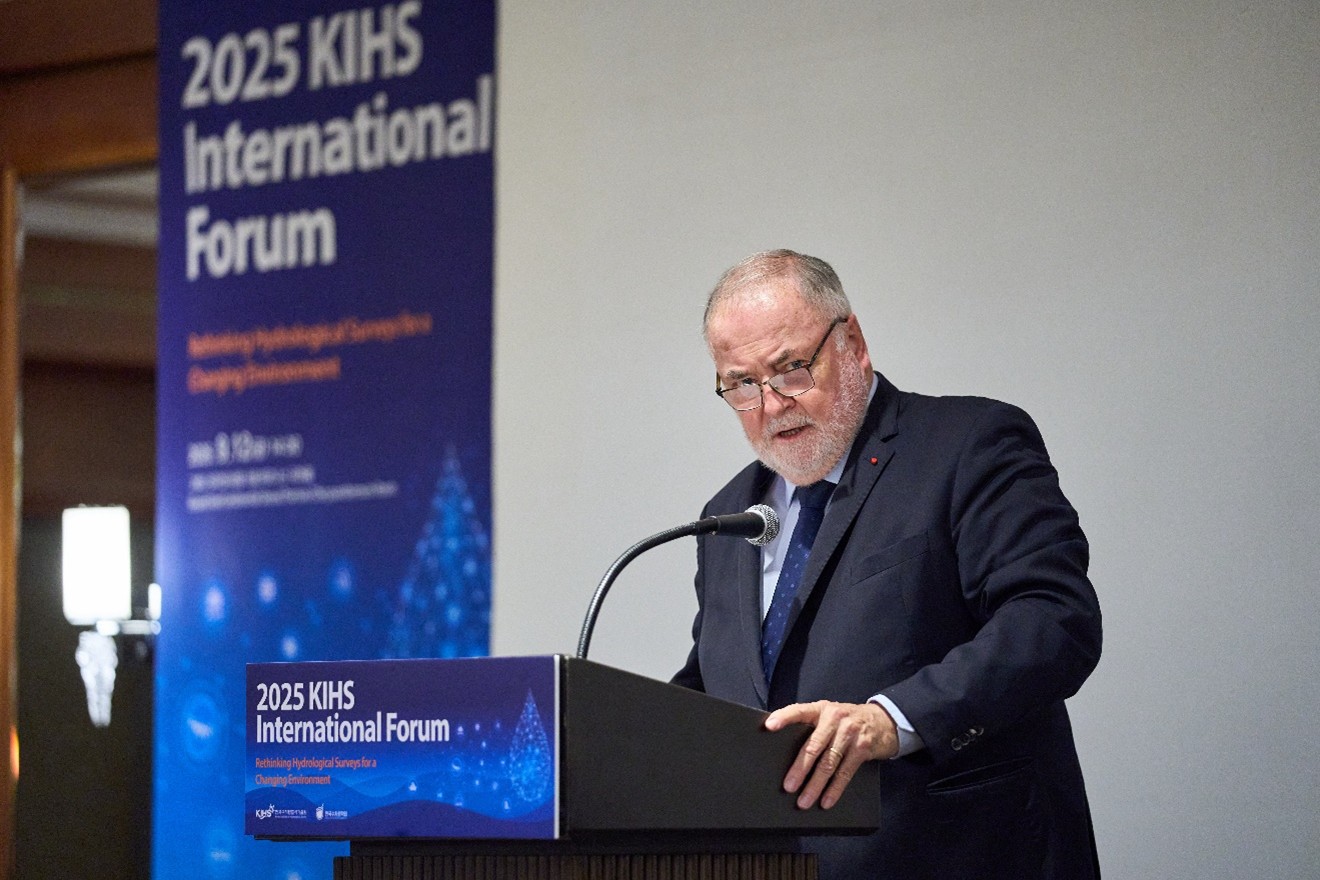
High-Level Dialogues with Government and Cities
The visit began with a strategic meeting with Vice Minister Hanseung Kum of the Ministry of Environment (MOE). Discussions highlighted Korea’s governance reforms derived from the Framework Act on Water Management. The WWC President commended Korea’s scientific advances, from AI-based flood forecasting to digital twins for river–dam management, as examples that could inspire global replication. The two sides also explored avenues for joint policy briefs and strategic communication to amplify Korea’s innovations worldwide, particularly on the road to the 11th World Water Forum in Riyadh in 2027.
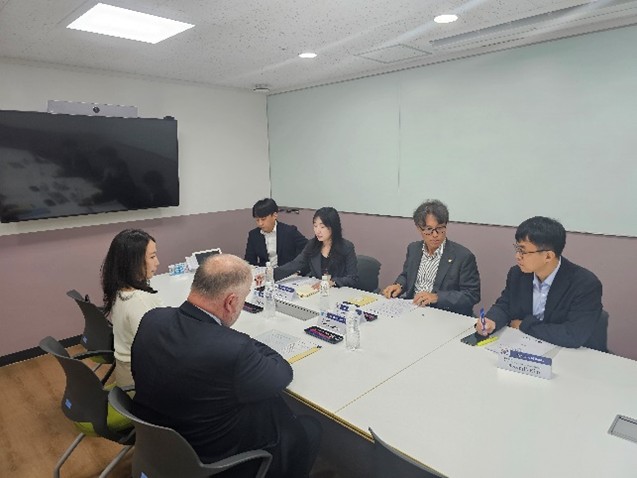
At the meeting with Daegu city, the President congratulated the city for its pioneering role in hosting the World Water Cities Forum (WWCF), which has become a flagship platform for dialogue among global cities. Looking forward, Daegu will play a role in the Local and Regional Authorities Process of the Riyadh Forum.
During the meeting with Mayor Gi-chang Kwon of Andong, the focus shifted to upstream stewardship, with the city presenting its Water-Cycle Master Plan and efforts to foster harmony between headwaters and downstream communities. The WWC discussed ways to elevate Andong’s roles internationally by disseminating local water agenda, including through a proposed collaboration in developing the local authority’s role in water management and the water cycle.
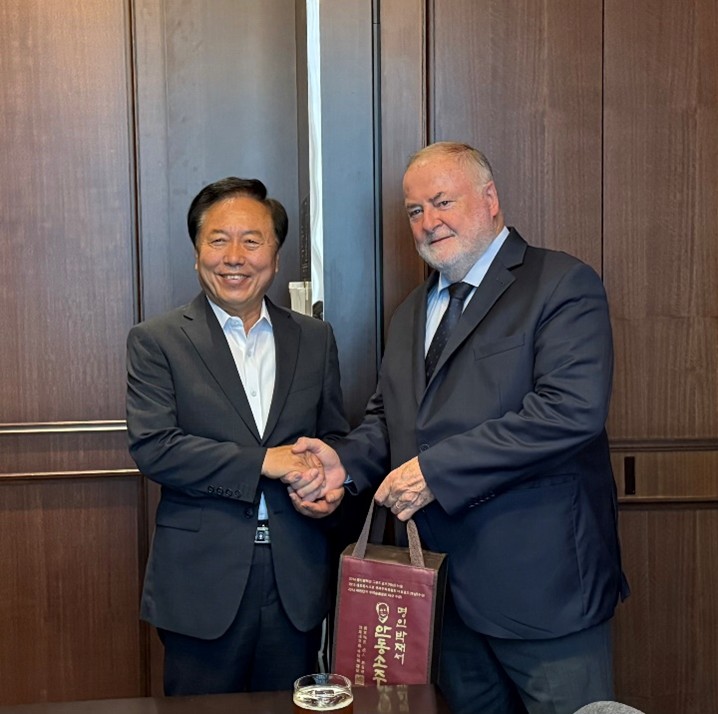
During Seoul city meeting, Director General Seongkook Jeong also presented its resilience strategies following the recent flash floods driven by climate divigation. With deep underground tunnels, AI forecasting, and citizen alert systems, the city is shaping itself as a global model of urban water resilience. The WWC President recognized Seoul’s Green–Blue Network and restoration projects such as Cheonggyecheon and other tributaries of the Han River, which integrate water management with cultural and ecological renewal.
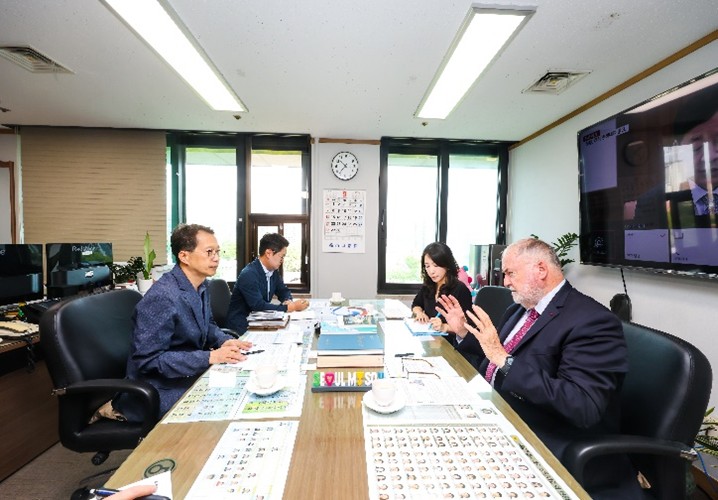
In addition, in the meeting with K-water CEO (Seog-dae Yoon), a range of approaches to fostering innovation in water-sector technologies and policies was discussed. The meeting with KIHS President(Youngkee Lee), emphasized the importance of hydrological surveys and data-technology advancement for sustainable water management. The President respectfully requested that both institutions amplify their expertise and cases at the forthcoming World Water Forum.
Korean Members’ Meeting: Solidarity and Shared Vision
The highlight of the visit was the Korean Members’ Meeting on September 15, hosted by the Korean Ministry of Environment, where 25 participants representing 13 WWC member organizations and related institutions gathered. The meeting served to:
- Strengthen cooperation among Korean members within international WWC activities.
- Explore how Korea’s experiences can be disseminated globally through the Council.
- Discuss contributions of Korean members to WWC’s vision and the Forum process.
From national ministries to research institutes and city governments, the meeting showcased the diversity and strength of Korea’s membership. Participants reaffirmed their commitment to contributing expertise, technology, and governance models to the global water agenda through the World Water Council activities and the next World Water Forum.
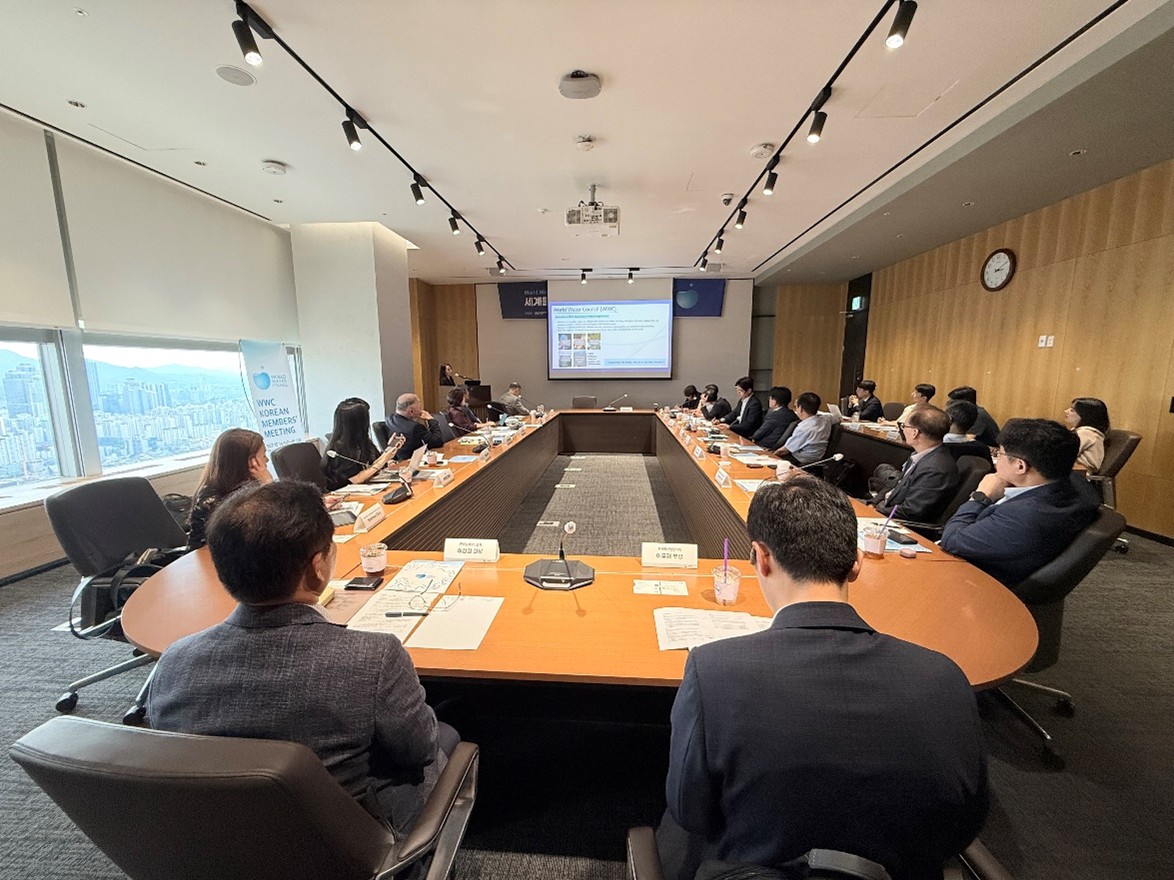
Looking Ahead
The WWC President emphasized three imperatives for global water security: Preserve, Reserve, and Serve—protecting ecosystems, securing resources for future generations, and ensuring access for all. Korea’s journey, from governance reforms to technical innovation and city-level leadership, demonstrates how these principles can be translated into action.
The tour concluded with renewed momentum for Korea’s role as both a scientific and diplomatic leader in global water governance. As preparations advance toward Riyadh 2027, Korea’s contributions through its institutions, cities, and national leadership will be vital in shaping solutions for a water-secure future.
